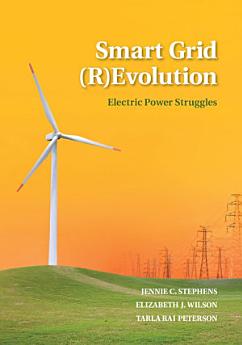Smart Grid (R)Evolution: Electric Power Struggles
About this ebook
About the author
Jennie C. Stephens is the Blittersdorf Professor of Sustainability Science and Policy at the University of Vermont's Rubenstein School of Environment and Natural Resources, and its College of Engineering and Mathematical Sciences. Her research, teaching, and community engagement focus on the sociopolitical aspects of energy technology innovation, electricity system change, and climate change communication. She has contributed to the understanding of the social dynamics of wind power, carbon capture and storage, and smart grid, and she brings to this project experience in stakeholder engagement and in communication with experts, academics, and the public. She is particularly interested in continuing to learn as we transition away from fossil fuel-based energy systems toward renewables-based systems.
Elizabeth J. Wilson is Associate Professor of Energy and Environmental Policy and Law at the Humphrey School of Public Affairs and a Fellow at the Institute on the Environment, both at the University of Minnesota. She has extensive knowledge on the importance of subnational factors in shaping energy policy and technology deployment, with a special focus on policies, regulatory and legal frameworks for emerging energy technologies in states, and regional transmission organizations. Her research has also focused on regulatory and governance systems for carbon capture and sequestration, energy efficiency, and wind power.
Tarla Rai Peterson holds the Boone and Crockett Chair of Wildlife and Conservation Policy at Texas A & M University and is Professor at the Swedish University of Agricultural Sciences, Uppsala. She has published several books on communication, technology, and the environment as well as numerous research articles on communication and public involvement in environmental decision making, particularly as it relates to sustainability. She has extensive theoretical and critical expertise on public involvement in and public perception of environmental concerns and technologies, and on the critical role of mediated and interpersonal communication in interactions among different actors.





